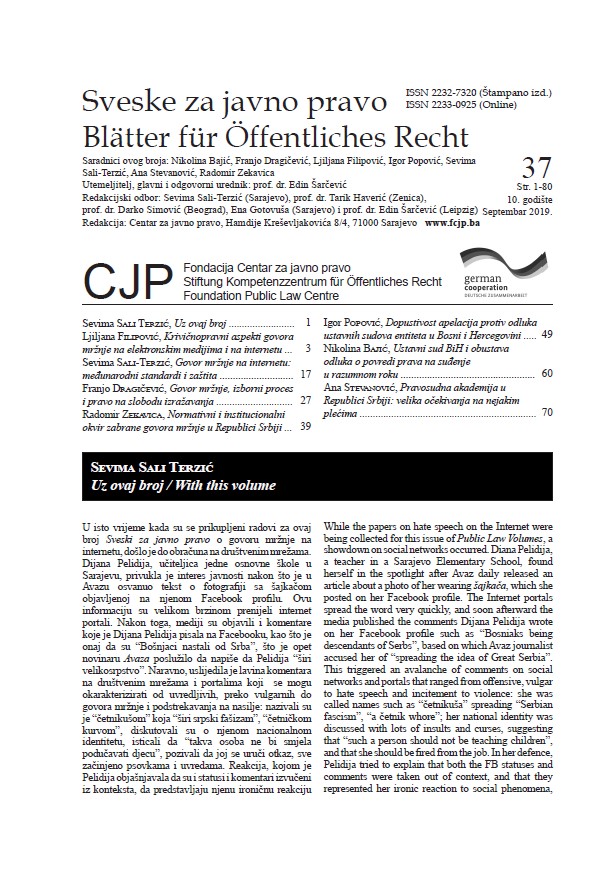Pravosudna akademija u Republici Srbiji: velika očekivanja na nejakim plećima
Judicial academy of the Republic of Serbia, struggling with big expectations, despite its weaknesses
Author(s): Ana StevanovićSubject(s): Constitutional Law, Higher Education
Published by: Fondacija Centar za javno pravo
Keywords: Republic of Serbia; Judicial academy; conducting judicial and prosecutorial functions professionally; constitutional amendments;
Summary/Abstract: From the very beginning of the Judicial Academy's activities, the Serbian judiciary faced a problem that arose from an insufficiently well-designed initial training position. In the last few years, the Academy has significantly improved, but there is still a difference between the proclaimed and the real. The capacities of the Academy are insufficient, and the selection criteria for commissions, mentors and lecturers are not sufficiently built or reliable to make the institution the only "entrance" to the judiciary. The Judicial Academy was establishe to conduct judicial and prosecutorial functions professionally, independently, impartially and efficiently, as well as to determine objective criteria in the selection and promotion of judges, public prosecutors and deputy public prosecutors. The goal is only partially met, in terms of initial training and not without any objection. A citizen of the Republci of Serbia who fulfills the general conditions for work in state bodies, who has completed the law faculty, has passed the bar exam and who is competent, qualified and worthy of judicial office can be elected as a judge. Also, it is necessary to have sufficient working experience. With the draft of constitutional amendments, all this is added to the condition of “completed training in the Judicial Academy”.
Journal: Sveske za javno pravo
- Issue Year: 10/2019
- Issue No: 37
- Page Range: 70-78
- Page Count: 9
- Language: Serbian

